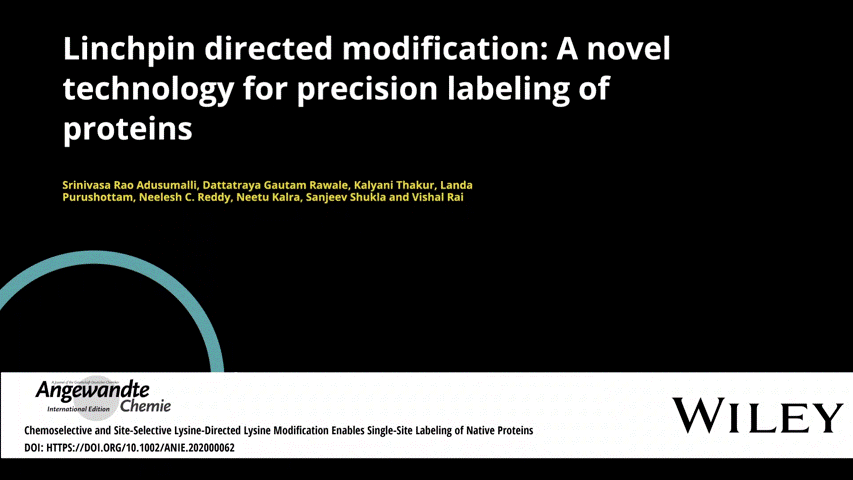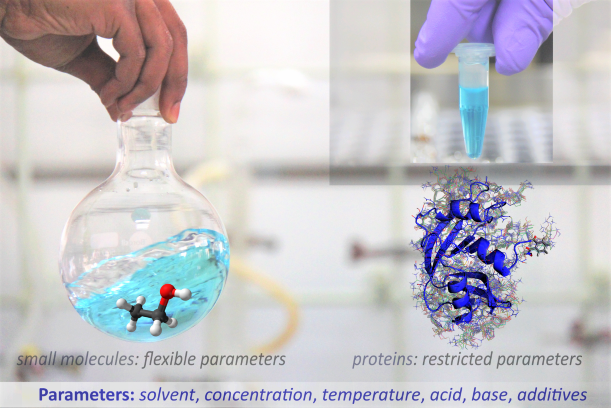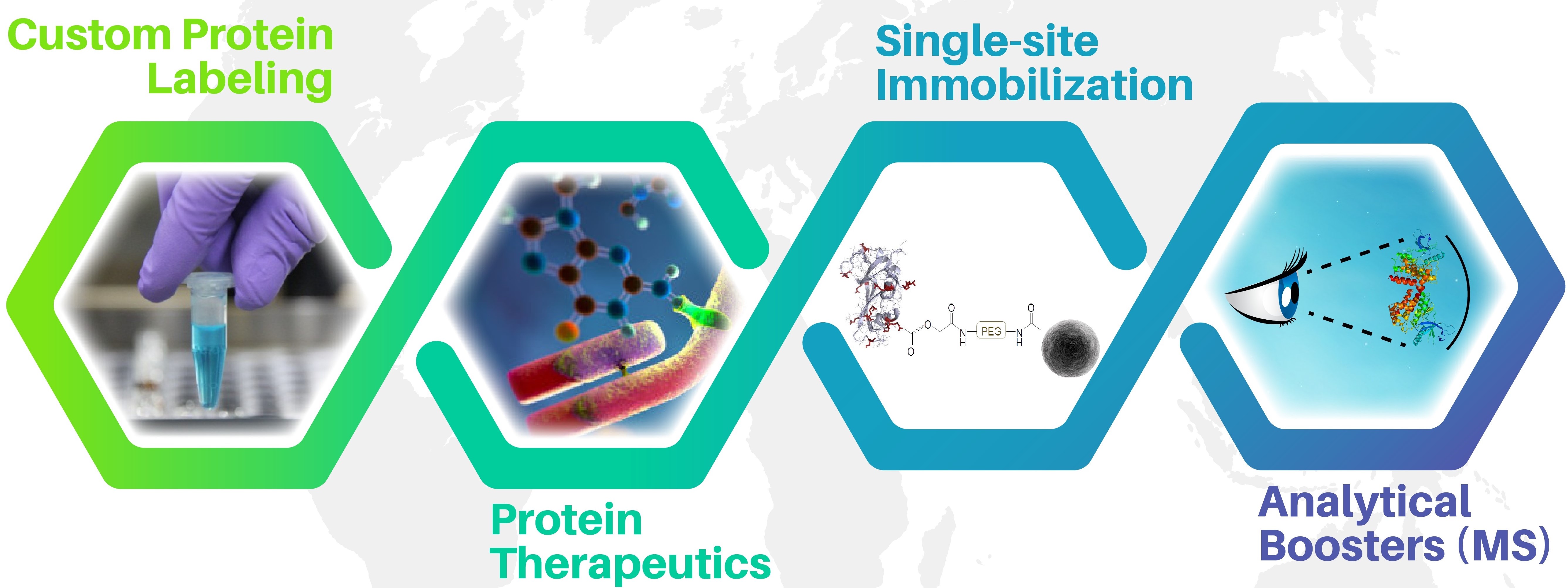research
Video overview: 1-minute | 30-minutes | 45-minutes
Chemical methods for "PRECISION engineering of PROTEINS"
WHY IS IT IMPORTANT ?
Chemical biology research often requires precise covalent attachment of tags to the proteins. Such methods enable bioimaging, biophysical investigations, disease diagnosis, and protein-based therapeutics.
MAKING IT POSSIBLE !
Chemical methods for precise single-site modification of native proteins was not considered a realistic approach. We try to understand the reasons that strengthened this school of thought. In this perspective, we deconvolute the challenges and probe them one by one. We invest efforts to understand the organic chemistry with proteins. Gradually, we want to learn how to regulate the precision of this chemistry in various reactions flasks, including microcentrifuge tube, live cells, tissues, animals, and humans.
The first step toward these targets involves understanding the reactivity landscape of proteins. The critical challenge relates to the identification of physical organic chemistry principles that would allow us to generate reactivity biases at specific sites of the protein.
OUR TECHNOLOGIES
(a) LDM® technology: Modular linchpin directed modification of proteins. Provides single-site labeled proteins and homogeneous antibody conjugates such as antibody-drug conjugates (ADCs), antibody-fluorophore conjugates, etc.

Watch the video: LINK
(b) GLY-TAG® technology: N-Gly residue specific labelling.

(c) Reactivity hotspot technology: N-terminus, Lys, and His (stay tuned for more).
(d) MASPECTER® sensitivity boosters: Low concentration detection of peptides to enhance peptide mapping, protein sequencing (MS-MS), and identification of site-of-conjugation in protein bioconjugates and ADCs.
CONTRIBUTIONS
(a) In-depth understanding of principles: Chemoselectivity, site-selectivity, residue-specificity, modularity.
(b) Single-site protein modification, regulation of site and residue.
(c) Precise installation of diverse biophysical and biochemical probes.
(d) User-friendly protocols, analytically pure labelled proteins.
(e) Ordered single-site immobilization.
(f) Tagged insulin.
(g) Homogeneous antibody-drug conjugates (ADCs) for directed cancer chemotherapeutics.
DREAMS
Enabling protein-based therapeutics: ADCs, conjugate vaccines etc.
Making precision therapeutics with small molecules a reality: Can we selectively target a single-site of a single-protein within the human cell to regulate a signalling pathway?
Funding agencies: SERB, DST, DAE, DBT, BIRAC, IISER Bhopal

